
Providing Hawaii's physically active community and medical community with evidence based research education, support and resources to manage concussions.
presented by the State of Hawaii Department of Health,
University of Hawaii, College of Education,
HCAMP and the Queen's Center for Sports Medicine
Hawaii Concussion Awareness & Management Program (HCAMP) has reported that an average of 1,000 concussions were sustained annually by Hawaii's high school athletes over the last ten years. HCAMP has also reported an average high school athlete takes more than three weeks to recover from a concussion. The featured faculty will provide research-based evidence and discuss techniques to help manage a concussion from initial injury to recovery, including patients with cognitive deficiency. Topics will include best practices for schools and youth organizations to implement to help keep students and members safe.
Attendees will be provided with the most up-to-date treatments and be inspired to start using these techniques immediately.
This conference has broad appeal to physicians, athletic trainers, physical therapists, speech language pathology and other healthcare professionals.

Dr. Chesnutt is a Sports Medicine Physician specializing in the evaluation & management of injuries in youth and athletes of all ages. Dr. Chesnutt is board certified in Family Medicine and in the specialty of Sports Medicine since 1997. He has been working at OHSU for over 20 years where he has served as the founding Medical Director of the OHSU Sports Medicine Program and Medical Director of the OHSU March Wellness & Fitness Center. Dr. Chesnutt is currently a team physician for the Portland Trail Blazers, and previously for the Portland Timbers, Portland Beavers Baseball and numerous high schools and universities around Portland. Additionally, Dr. Chesnutt serves as a medical advisor for the OSAA, is Co-Director of the Oregon Concussion Awareness and Management Program (OCAMP) and is an advisor to the Stanford Concussion and Brain Performance Center's national concussion guidelines and education program.
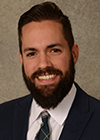
Dr. Howell received his PhD in 2014 in the Department of Human Physiology at the University of Oregon and then completed a post-doctoral research fellowship in the Division of Sports Medicine at Boston Children's Hospital in 2017. As a full time researcher, his primary interests consist of investigating clinically pragmatic and objective methods that help clinicians diagnose, manage, and treat sport-related concussion. He has published numerous studies on postural stability, gait control and dual tasking.
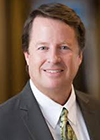
Mr. Kracke is the Brain Injury Advocate-Coordinator for the Center on Brain Injury Research and Training (CBIRT). Prior to that was a partner at the Nicholas Law Group in Portland from 1997-2018 where he represented individuals with brain injury. David has an extensive background working with private and public stakeholder groups in the realm of legislative and policy initiatives. He is a recognized legislative and policy expert in TBI with interests in consumer safety, organized youth sports, education, and social services. David served as a lead author and legislative advocate for the stakeholder-informed efforts to pass concussion-response education laws, including Oregon Revised Statute (ORS) 336.485, (“Max's Law”), one the nation's first enacted laws establishing concussion protocols for concussed high school athletes and ORS 417.875, (“Jenna's Law”), a companion law to Max's Law which provided state-wide concussion protocols for all youth athletes in the state of Oregon regardless of league affiliation.

Dr. Sohlberg has been teaching and conducting research at the University of Oregon since 1994. She is the proud director of the Communication Disorders and Sciences program. Professor Sohlberg is known internationally for her pioneering work in the field of cognitive rehabilitation. Her research focuses on the development and evaluation of interventions to address deficits in attention, memory and executive functions following acquired brain injury. She is particularly interested in the development of treatments that mitigate cognitive effects for individuals with brain injury in the post acute phase, including individuals with persistent cognitive effects following concussive injuries and individuals who are attempting to pursue postsecondary education following brain trauma. Dr. Sohlberg has published numerous articles and book chapters as well as coauthored three leading textbooks in the field of cognitive rehabilitation. She has been supported by a number of federal grants that focus on the development and evaluation of assistive technology for cognition and the evaluation of attention training. Professor Sohlberg teaches graduate courses related to cognitive rehabilitation and evidence-based practice and supervises in the CDS PhD program. She also co-directs the cognitive rehabilitation clinic in the College of Education HEDCO clinic.
Professor Sohlberg is a Fellow of the American Speech-Language-Hearing Association (ASHA). She holds the HEDCO Endowed Professorship and has received a number of honors for her teaching and research. Professor Sohlberg serves on several committees charged with the development of evidence-based practice guidelines for the treatment of traumatic brain injury within the Academy of Neurologic Communication Disorders & Sciences, the Veterans Administration and the Department of Defense.

Dr. Swartz's research interest focuses on the prevention and acute care of head and neck injuries in football. He has received grants from The NATA Foundation, NOCSAE, NFL Charities and was a winner of the NineSigma Head Health Challenge. He has published in journals such as The American Journal of Emergency Medicine, New England Journal of Medicine, Spine, and The American Journal of Sports Medicine. He served on the NFL Head Neck and Spine Committee's Subcommittee on Safety Equipment and Rules and as chair of the NATA Position Statement on the Acute Management of the Cervical Spine Injured Athlete. He serves on the Editorial Boards of the Journal of Athletic Training and the Athletic Training and Sports Health Care Journal. In 2011 he was honored with a Fellows designation in the National Athletic Trainers' Association and in 2015 received the Most Distinguished Athletic Trainer Award, also from the NATA. He received his PhD in Applied Biomechanics at the University of Toledo.
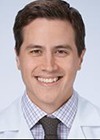
Dr. Chun is a Sports Medicine physician at the Kaiser Permanente Hospital in Honolulu, Hawaii. He received his family medicine residency in Sacramento and his sports medicine fellowship at Kaiser Permanente Fontana Medical Center in Fontana, California. Dr. Chun is the founder of the Kaiser Permanente Sports Medicine clinic in Honolulu. He is an assistant clinical professor at the University Of Hawaii John A. Burns School Of Medicine and a clinical preceptor for the University of Hawaii Graduate Athletic Training Program. He is the medical director for the Kaiser Permanente Great Aloha Run and serves on the Kaiser Permanente Hawaii Regional Concussion Task Force.
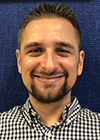
Dr. Freemyer completed his masters and doctoral work at the University of Hawaii, Manoa. He continued here at UH as a faculty member in the Professional Athletic Training (MS) & undergraduate Exercise Science programs, and is the co-director of the Human Performance Gait Lab. Dr. Freemyer’s research interests include biomechanics, clinical strength assessments, hip preservation, and injury prevention interventions. His clinical experiences as an athletic trainer the past 13 years have included high school, military, and physical therapy settings.
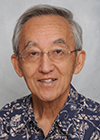
Dr. Tsushima is a clinical psychologist at Straub Medical Center in Honolulu, Hawaii, where he has specialized in medical psychology, clinical neuropsychology, forensic psychology, and sport psychology for the past 49 years. In addition to his work at Straub, he has been the neuropsychological consultant for HCAMP for the past 11 years and has published 12 articles based on research of the ImPACT test data of Hawai‘i high school athletes. His published papers in sport neuropsychology have focused on Hawai‘i ImPACT normative data, test-retest reliability, the effects of one and two concussions on neuropsychological test performance, subconcussive neurocognitive effects, the role of native language on ImPACT scores, high and low contact sports, and football players at different positions. He continues to be active in investigating the effects of sport concussions and head trauma.
| 4:30-5:00 p.m. | Registration |
| 5:00-6:00 p.m. |
Clinical Strength Evaluation & Knee Injury Biomechanics Bret Freemyer, PhD, ATC [ Category A ] |
| 6:00-7:00 p.m. |
Musculoskeletal Injury Risk After Returning to Play Post-Concussion David Howell, PhD, ATC [ Category A ] |
| 7:00-8:00 p.m. |
Multidisciplinary Approach to Concussion Rehabilitation and Recovery James Chesnutt, MD [ Category A ] |
| 7:30-8:00 a.m. | Registration and Exhibits |
| 8:00-8:30 a.m. | Welcome and Introduction |
| 8:30-9:30 a.m. |
Keynote: A Comparison of Concussion Systems Models Investigating Heterogeneity, Clinical Application, and Research Needs James Chesnutt, MD [ EBP ] |
| 9:30-10:30 a.m. |
Establishing Integrated Care for the Management of Cognitive Symptoms Following Concussion McKay Sohlberg, PhD, CCC-SLP [ Category A ] |
| 10:30-10:45 a.m. | Break and Exhibits |
| 10:45-11:45 a.m. |
Concussion Legislation for Young Athletes and Organizations' Best Practices David Kracke, JD [ Category A ] |
| 11:45a-1:00 p.m. | Lunch |
| 1:00-3:00 p.m. | Audience selects 1 of 2 presentations offered: |
|
Presentation 1: Personalized Interventions for Managing Persistent Cognitive Symptoms Affecting Learning McKay Sohlberg, PhD, CCC-SLP [ Category A ] |
|
|
Presentation 2: Lab: The Use of Clinical Dual Task Assessment in the Management of Concussed Adolescent Patients David Howell, PhD, ATC [ EBP ] |
|
| 3:00-3:15 p.m. | Break |
| 3:15-3:45 p.m. |
ImPACT Testing: Hawaii Norms and Baseline Testing William Tsushima, PhD [ Category A ] |
| 3:45-4:15 p.m. |
Concussion Epidemiology in Youth Sports: an Analysis of 6 Years of Concussion Incidence Data in a State-Wide High School Sports Program Benjamin Chun, MD [ Category A ] |
| 4:15-4:45 p.m. |
HuTT 808 Erik Swartz, PhD, ATC, FNATA [ Category A ] |
| 4:45-5:00 p.m. | Closing Remarks |
After completing this educational activity, participants should be able to:
PHYSICIANS
This activity has been planned and implemented in accordance with the accreditation requirements and policies of the Accreditation Council for Continuing Medical Education through the joint providership of The Queen's Medical Center and the Hawai'i Concussion Awareness & Management Program. The Queen's Medical Center is accredited to provide continuing medical education for physicians.
The Queen's Medical Center designates this live activity for a maximum of 9.5 AMA PRA Category 1 Credits. Physicians should claim only the credit commensurate with the extent of their participation in the activity.
ATHLETIC TRAINERS
 Hawaii Concussion Awareness and Management Program (BOC AP #P10061) is approved by the Board of Certification, Inc. to provide continuing education to Athletic Trainers. This program is eligible for a maximum of 6.5 Category A hours/CEUs. ATs should claim only those hours actually spent in the educational program.
Hawaii Concussion Awareness and Management Program (BOC AP #P10061) is approved by the Board of Certification, Inc. to provide continuing education to Athletic Trainers. This program is eligible for a maximum of 6.5 Category A hours/CEUs. ATs should claim only those hours actually spent in the educational program.
Hawaii Concussion Awareness and Management Program (BOC AP #P10061) is approved by the Board of Certification, Inc. to provide continuing education to Athletic Trainers. This program is eligible for a maximum of 3 EBP Category hours/CEUs. ATs should claim only those hours actually spent in the educational program.
PHYSICAL THERAPISTS
Continuing Competence units (CCUs) pending approval from Hawaii Board of Physical Therapy.
OTHER HEALTH PROFESSIONALS
A certificate of attendance will be provided to other healthcare professionals for requesting credits in accordance with state boards, specialty societies, or other professional associations.
LEVEL OF DIFFICULTY
Essential and advanced
The Queen's Medical Center
The Center for Sports Medicine
Ross Oshiro
Phone: (808) 691-8059 • Email: rooshiro@queens.org

EXHIBITORS